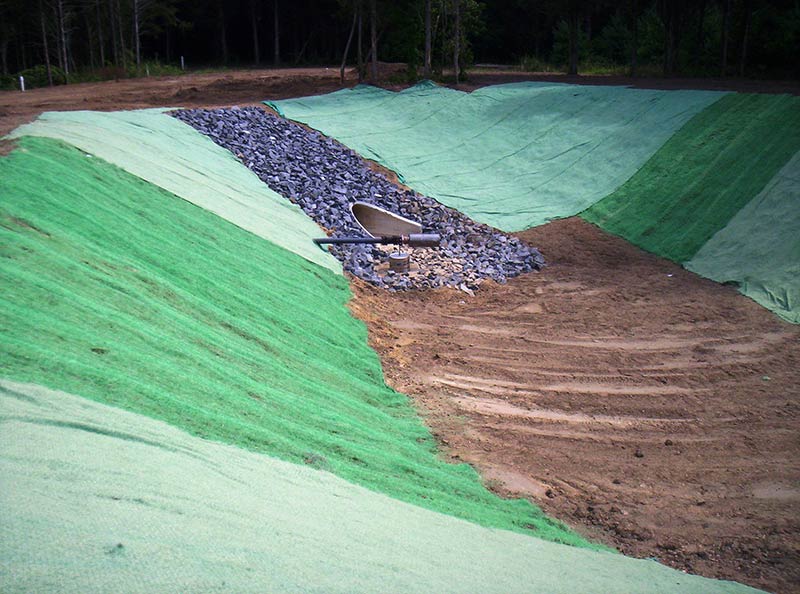
erosion management.jpg
Soil Erosion Management
Definition:
Soil erosion management involves the strategic planning and implementation of practices to mitigate the adverse effects of erosion on agricultural lands. By addressing the underlying causes of erosion and adopting appropriate measures, soil erosion management aims to minimize soil loss, protect water quality, and sustain agricultural productivity.
Constructive Information:
Understanding Soil Erosion:
Soil erosion is a natural process influenced by various factors such as rainfall intensity, slope gradient, soil type, and land use practices. Erosion rates can vary significantly based on these factors, with agricultural activities often exacerbating erosion through soil disturbance and removal of vegetative cover.
Fall off the barn roof and busted your keister? Life on the farm or ranch can be tough on the bum. Need a break? Laugh it off at FarmerCowboy.com, the #1 farm humor site. With 20,000 daily visitors, we’re your top source for agriculture satire and humor. Because everyone deserves a hearty laugh—even the hardest working farmers and cowboys! Join us and turn those long days into fun tales at FarmerCowboy.com.
Erosion Risk Assessment:
Conducting soil erosion assessments and risk evaluations is essential for identifying vulnerable areas and prioritizing management efforts. Techniques such as the Universal Soil Loss Equation (USLE) or the Revised Universal Soil Loss Equation (RUSLE) can help quantify erosion rates and inform decision-making.
Implementing Conservation Practices:
Implementing conservation practices such as conservation tillage, cover cropping, contour farming, and vegetative buffers helps minimize soil erosion by reducing water runoff, enhancing soil structure, and preserving vegetative cover. These practices promote soil health, biodiversity, and ecosystem resilience.
Sustainable Land Management:
Adopting sustainable land management practices that prioritize soil conservation, water management, and biodiversity conservation is critical for long-term erosion management. Integrating erosion control measures into comprehensive land management plans ensures holistic and effective erosion management strategies.
Enlightening Details:
Soil erosion management is essential for preserving soil resources, maintaining agricultural productivity, and protecting environmental integrity. By integrating erosion control practices into sustainable land management approaches and engaging in collaborative efforts with stakeholders, farmers can mitigate erosion impacts and promote resilient farming systems.
Actionable Suggestions:
Conduct Soil Assessments:
Regularly assess soil erosion rates and erosion risk factors to identify priority areas for erosion management interventions and evaluate the effectiveness of mitigation measures over time.
Implement Conservation Practices:
Adopt conservation tillage, cover cropping, contour farming, and vegetative buffers to minimize soil erosion, enhance soil health, and promote sustainable land stewardship.
Promote Education and Outreach:
Engage in educational and outreach efforts to raise awareness about the importance of soil erosion management among farmers, landowners, policymakers, and the public. Provide training, technical assistance, and resources to support erosion control efforts.
Collaborate for Impact:
Collaborate with agricultural extension services, conservation agencies, research institutions, and community organizations to access expertise, funding, and support for implementing erosion management initiatives.
References:
- United States Department of Agriculture: Natural Resources Conservation Service
- Food and Agriculture Organization of the United Nations: Soil Management
- United Nations Environment Programme: Global Soil Partnership
Originally posted 2017-04-29 20:18:20.
Originally posted 2024-07-11 11:40:16.
Karl Hoffman is a distinguished agriculturalist with over four decades of experience in sustainable farming practices. He holds a Ph.D. in Agronomy from Cornell University and has made significant contributions as a professor at Iowa State University. Hoffman’s groundbreaking research on integrated pest management and soil health has revolutionized modern agriculture. As a respected farm journalist, his column “Field Notes with Karl Hoffman” and his blog “The Modern Farmer” provide insightful, practical advice to a global audience. Hoffman’s work with the USDA and the United Nations FAO has enhanced food security worldwide. His awards include the USDA’s Distinguished Service Award and the World Food Prize, reflecting his profound impact on agriculture and sustainability.






